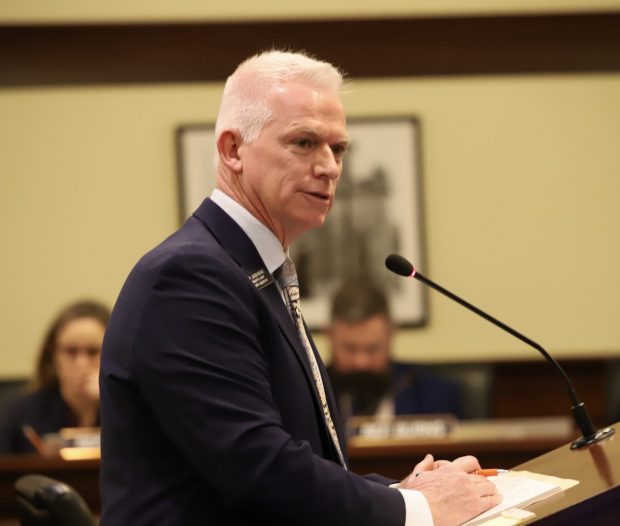A pair of Idaho school districts are moving forward with plans to adopt four-day school weeks, despite the mystery surrounding to-be-determined minimum calendar days proposed by a sweeping facilities funding bill.
On Monday, Emmett School District trustees unanimously voted to approve a four-day-per-week calendar for next school year. That followed a similar vote in February by the Teton School District. Emmett is now the 96th school district or charter school to adopt a four-day week schedule.
Most Emmett teachers supported the move, and positive results from a patron survey swayed trustees, who previously had doubts. “The biggest thing is community support and teacher support and being unified in the efforts that we put forth to do this,” said Trustee Janet Hines.
Emmett trustees agonized over the decision. Board member Tim Brady quipped that he might lose his seat because of the vote. Trustee Terry Jones said, “Of all the things I’ve done sitting on this board this has been the most difficult.”
Meanwhile, a bill moving through the Legislature is making those local decisions even more fraught. House Bill 521, authored by Gov. Brad Little and Republican lawmakers, would direct $1 billion in facilities funding to school districts next fiscal year.
School leaders have lauded the proposal for addressing school maintenance and construction backlogs. But they’ve also expressed anxiety over a four-day week provision buried in the legislation.
The bill says eligibility for facilities money hinges on districts attesting that they won’t switch to a four-day week “during the period for which” they elect to receive the funds. However, the bill’s next sentence says, “If the school district does convert” it must attest that it meets minimum education days and teacher work days that the State Board of Education will set by Aug. 1.
Taken together, the two sentences muddle whether districts will be eligible for the funds if they move to four days.

During Statehouse hearings last month, House Majority Leader Jason Monks said the bill tells districts not to convert to four-day weeks. “We’re saying, ‘Don’t convert to that,’” Monks, R-Meridian, told the House Revenue and Taxation Committee.
Monks later told Idaho Education News that some bill co-sponsors, himself included, want to disincentivize districts from going to four days, but the State Board ultimately is responsible for crafting a policy based on the language in HB 521.
State Board spokesman Mike Keckler directed EdNews to the Department of Education for details on what that policy might look like. So did the governor’s office. Little has been the driving force behind the facilities bill, and the four-day issue is close to home — Emmett is his home district.
“Recognizing the authority of local school boards to adopt four- or five-day weeks, House Bill 521 provides districts with options to remain in compliance and receive school facility funding,” Little’s spokeswoman Madison Hardy said. “For more information about the practical implementation of four-day week standards, we recommend contacting the Idaho Department of Education.”
State Superintendent Debbie Critchfield already weighed in publicly, telling a Senate committee last week that “there’s nothing in the bill that says a district cannot go to four-day.” Spokesman Scott Graf confirmed her reading of the bill to EdNews.

Critchfield’s “interpretation is that the second sentence leaves open the door for a district to move to a four-day week,” Graf said, “and that the district would be eligible for facilities funds so long as it meets the minimum instruction requirements to be set by the State Board of Education.”
The uncertainty around HB 521 was “almost comically bad” for Teton, school board chair Martin Balben said during a meeting last month. “We could stand to lose a lot of money by rushing into a decision that doesn’t correspond with these new directives that are coming down.”
According to estimates, Teton could get $7.7 million if HB 521 passes. Emmett stands to gain nearly $10 million. The Nampa School District, which is also considering a four-day move, could get nearly $47 million.
Teton trustees, after a lengthy debate, voted to move forward with a four-day week next school year, with a caveat: The district will revert to five days if HB 521 turns out to have “financial implications detrimental” to the district.
Critchfield, a State Board member, pledged the panel will adopt the new four-day policies in May. Leading up to those discussions, the department is collecting data on four- and five-day districts “to make the best informed decisions,” she told lawmakers.
Even school leaders in districts that already operate on four-day weeks are anxious to find out the forthcoming minimum days. Districts across the state are crafting next year’s calendars, which could change depending on the minimums.
“We are hearing routine concerns about the language regarding four-day — both from districts who are currently on one and those looking to transition,” said Quinn Perry, deputy director for the Idaho School Boards Association.
The ISBA is advising members to “wait and see” what the State Board decides, Perry said, and recommending school leaders contact lawmakers and State Board officials in the meantime.
HB 521 is awaiting a vote on the Senate floor before it heads to Little’s desk.
